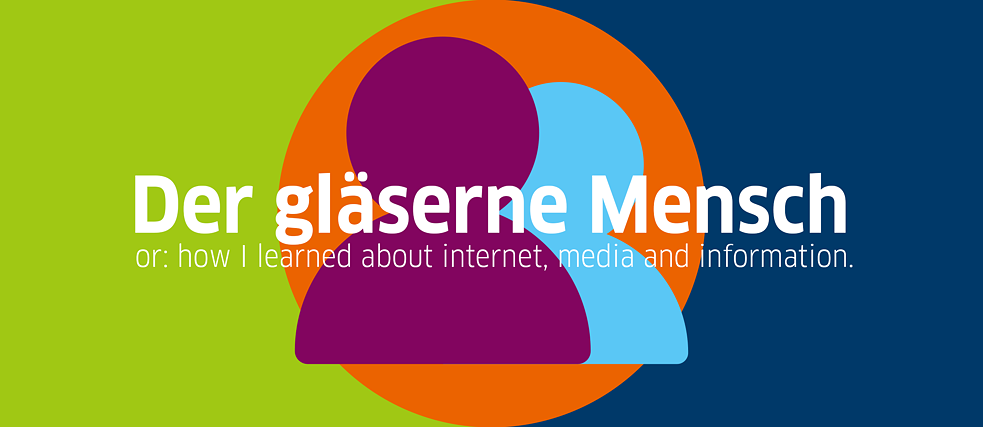Promoting conversations around youth and technology in Southeast Europe
Tactical Tech interviewed Gordana Baboska and Falk Schleicher from the Dept. of Educational Cooperation at Goethe-Institut Skopje who shared insights into the work of the organisation and the collaboration with Tactical Tech.
Tactical Tech: How do you imagine a different digital future?
Goethe-Institut Skopje: Our dream is a digital world in which young people have sufficient media and literacy competencies to make well-informed and independent decisions and thereby create a digital future in which there are equal opportunities for learning and participation for everyone. In this future, young people will meet across borders and exchange ideas, learn from each other and inspire our programs and offers.
 *Logo Goethe-Institut
*Logo Goethe-Institut
TT: What is Goethe-Institut Skopje's mission?
G.I.S: One of our goals is to support stakeholders from civil society by providing and nurturing protected spaces in which diverse perspectives can be exchanged. We are promoting democratic dialogues, even in difficult times. In our work, we orientate ourselves towards the values of a democratic, liberal society governed by the rule of law.\ \ Via our digital information and educational programs, we offer spaces to learn, meet up and participate. We use innovative technologies, seize the opportunities of digitalization and, at the same time, reflect on their implications for people and society. Through diverse formats, we enable communication on a worldwide basis.
For decades, the Goethe-Institut has established and maintained a network of schools committed to promoting the German language and intercultural exchange. This network comprises schools in major cities and remote areas. Therefore, we can reach a wide audience with our programs.
By enabling young people from smaller countries such as North Macedonia, we have provided those students with the means for their perspectives and ideas to be heard and discussed in a worldwide context. Hopefully, this will encourage many more students worldwide to participate in such programs and to become proactive, engage with their environment and participate in discourses with global impact.
TT: Could you share some insights into the collaboration with Tactical Tech?
G.I.S: The collaboration with TT resulted in the development of WTFW. This exhibit has been an attractive offer for many of our partner schools in Southeast Europe. It provided additional impulses within our efforts to promote information and media literacy among young people in the region.
The partnership between the TT and the Goethe-Instituts in Southeast Europe might be best described as a symbiosis. This joint effort provided a platform for young people and teachers from Europe to learn with and from each other and reflect on current challenges with a global impact. I.e., TT provided innovative means such as co-development workshops in which selected innovation methods were employed. The Goethe-Institut selected highly motivated students and teachers from its extensive partner school network in Southeast Europe and piloted the exhibit WTFW in selected partner schools in Southeast Europe.
Finally, we have linked WTFW with other offers and programs for young people and teachers, such as competitions, open houses at school, German teacher conventions and activities of the German teachers‘ associations in many countries.
 *Picture courtesy of Goethe-Institut Skopje
*Picture courtesy of Goethe-Institut Skopje
TT: What essential collaboration results would you like to highlight?
G.I.S: The co-development workshops for young people enabled an exchange of ideas and views among youth in Southeast-European countries. The results of these workshops resulted in a particular design of the exhibit, which was tested in selected schools in the region. Afterwards, the final exhibit has been shown at numerous schools in Southeast Europe.
Within the regional project „Der gläserne Mensch“, in which WTFW was an important component, we have engaged with our audiences through various regional and local social media campaigns (Facebook, TikTok, Instagram). Openings and events were attended by Ministers (such as the Minister of Information Society and Administration in North Macedonia), German ambassadors and other VIPs, which resulted in extensive media coverage. Also, we attended early morning shows to introduce the project.

*Pictures courtesy of Goethe-Institut Skopje
By partnering with local foundations, NGOs and experts who are active in promoting media and information literacy, the Goethe-Institut provided a suitable context. Within this sphere, we have provided an ecosystem in which WTFW and the activities that come along with it could reach the desired audience and enable them to share their perspectives. Furthermore, the Goethe-Institut has reached out to parents and teachers and thereby increased the impact of the project
 *Pictures courtesy of Goethe-Institut Skopje
*Pictures courtesy of Goethe-Institut Skopje
TT: How did your project and the partnership make a difference?
G.I.S: Visitors and students participated in the activities and came up with astonishing perspectives, which were very inspiring to us and to other visitors.
After the exhibit, many young people participated in our competition „My Digital Future“ https://www.goethe.de/ins/mk/de/kul/sup/dgm.html by submitting innovative visions of their digital futures.
The effects of the project can be measured by looking at qualitative and quantitative indicators such as the number of students who visited the exhibit, who joined activities and the range of ideas observed in the activities. However, the effects, such as a change in routines and behaviours, should be evaluated after a longer time period.
TT: Why is it important to continue these collaborations and partnerships?
G.I.S: By joining efforts and combining expertise, we will be able to increase our impact.